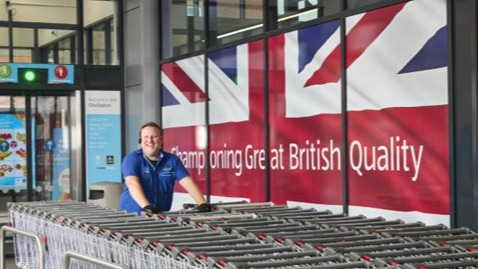Aldi spent an additional £1.3 billion with British suppliers last year.
The discount retailer said it that it had invested “more than ever” before in British suppliers and growers, who now provide over three quarters of all items sold in its stores.
“British suppliers are the lifeblood of our business and without them Aldi wouldn’t be where it is today - we will always be at their side,” said Julie Ashfield, managing director of buying at Aldi UK. “Longstanding relationships with suppliers are at the heart of our success and we are proud to work with so many British suppliers, helping to bolster job opportunities and investment in the UK supply chain.”
Earlier this week, Aldi launched a new ‘Best of British’ section on its website to encourage shoppers to buy products from UK businesses. The webpage includes a range of grocery items, including meat and dairy products, and everyday essentials.
The company, which now works with around 5,000 suppliers across the UK, has announced a wave of price cuts in the past month.
Aldi said it has now invested over £30 million in lowering its prices in the first month of 2024, with reductions on around 100 lines.
Latest News
-
Tesco makes ‘significant strides’ on safety through body worn cameras
-
Flying Tiger Copenhagen appoints new group chief executive
-
Walgreens cuts over 600 jobs after buyout
-
Mango opens first store in Limerick as part of expansion plan
-
eBay and Etsy to buy Depop for $1.2bn
-
REWE opens automated fresh food facility to serve Berlin outlets
Beyond Channels: Redefining retail with Unified Commerce
This Retail Systems fireside chat with Nikki Baird, Vice President, Strategy & Product at Aptos will explore how unified commerce strategies enable retailers to tear down these barriers and unlock new levels of operational agility and customer satisfaction.
The future of self-checkout: Building a system that works for consumers and retailers
In this webinar, industry leaders discussed what the future of self-checkout looks like and how retailers can make the technology work for everyone.
© 2024 Perspective Publishing Privacy & Cookies









Recent Stories